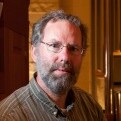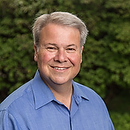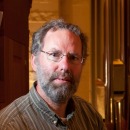Page 82 • (1,461 results in 0.031 seconds)
-

Paul Tegels Professor Emeritus Website: https://www.plu.edu/organ/ Professional Biography Video Additional Titles/Roles Term of Service: 2002-2023 Education D.M.A., University of Iowa, 1997 M.A., University of Iowa, 1994 M.M., New England Conservatory, 1984 Organ Performance Diploma, Stedelijk Conservatorium, The Netherlands, 1982 Organ Pedagogy Diploma, Stedelijk Conservatorium, The Netherlands, 1980 Areas of Emphasis or Expertise Organ Responsibilities Applied Organ Lessons, Teaches Ear
Area of Emphasis/Expertise -

Barry Johnson Associate Professor of Music - Voice Phone: 253-535-7625 Email: johnsobw@plu.edu Office Location: Mary Baker Russell Music Center - 341 Office Hours: (On Campus) Mon - Fri: By Appointment Professional Biography Additional Titles/Roles Co-Director of Opera Production/Workshop Director of Knights Chorus Education M.M., Music/Vocal Performance and Pedagogy, University of Colorado, Boulder, 1989 B.M., Music/Choral Education, University of Arizona, 1985 Responsibilities Teaches Applied
Office HoursMon - Fri: - -

Paul Tegels Professor Emeritus Website: https://www.plu.edu/organ/ Professional Biography Video Additional Titles/Roles Term of Service: 2002-2023 Education D.M.A., University of Iowa, 1997 M.A., University of Iowa, 1994 M.M., New England Conservatory, 1984 Organ Performance Diploma, Stedelijk Conservatorium, The Netherlands, 1982 Organ Pedagogy Diploma, Stedelijk Conservatorium, The Netherlands, 1980 Areas of Emphasis or Expertise Organ Responsibilities Applied Organ Lessons, Teaches Ear
Area of Emphasis/Expertise -
– covers topics in the field of physics Quantitative Reasoning = 45 minutes, 40 questions – questions cover: basic math, algebra, numerical calculations, probability and statistics, geometry and trigonometry and applied (word) problems. Click here to link to the main website for the OAT. The OAT exam is computerized and you are allowed to take the OAT as many times as you would like but must wait at least 90 days between testing dates. However, only scores from the four most recent attempts and the
-
– covers topics in the field of physics Quantitative Reasoning = 45 minutes, 40 questions – questions cover: basic math, algebra, numerical calculations, probability and statistics, geometry and trigonometry and applied (word) problems. Click here to link to the main website for the OAT. The OAT exam is computerized and you are allowed to take the OAT as many times as you would like but must wait at least 90 days between testing dates. However, only scores from the four most recent attempts and the
-
studies with an academic cognate field outside of music, such as psychology, religion, or mathematics. Bachelor of Music in Education — intended for those students wishing to be certified to teach music in the public schools. Bachelor of Arts in Music — intended for those students wishing to obtain a liberal arts degree in music. Music Minor — Intended for students who wish to increase their knowledge of academic and applied music without majoring in music.EnsemblesParticipation in musical ensembles
-
. Search for jobs On the left side menu click Jobs. Click on “On Campus.” You can also search for State Work Study jobs if you are a WA State resident and have a work study award or you can search for internships. All on campus jobs qualify for work study as well. Once you have applied to jobs you can look at “My Job Applications.” ApplyWe recommend that you apply for several jobs since you may not get hired for your top pick. Be sure to read the application instructions carefully. Some jobs may
-
A Semester in OxfordJakob Maier entered PLU as a first year in 2011 having been accepted into the academically rigorous International Honor’s program (IHON). When Professor Greg Johnson of the Philosophy Department revealed that he would be leading a program in Oxford, England specific to IHON students, Jakob quickly applied, being a Philosophy major himself. Also majoring in English Creative Writing, Jakob is now a senior, having studied away in Oxford the Spring semester of his Junior year
-
, biochemistry, chemical and electrical engineering – and related fields are welcome to apply. Why It’s Special: In just over a year, you can gain: 9-months work experience. This year’s average, annualized internship salary is over $64,000. A master’s degree in chemistry or applied physics. Focus areas: PV/ Semiconductors, Polymers, Molecular Sensors and Optics. (We also have a track in bioinformatics that follows a similar model. This session will focus on the four tracks above). A professional network
-
their internship and research An explanation of how the internship will relate to the student’s chosen concentration. A bibliography of at least 5 scholarly sources that address the question. Estimated contact hours at the internship. A detailed explanation of the students’ expected responsibilities at the work site. Anticipated dates of meetings with advisors. A Journal that records the students’ experiences in the workplace, and analysis of those experiences. This should be a sustained journal
Do you have any feedback for us? If so, feel free to use our Feedback Form.


